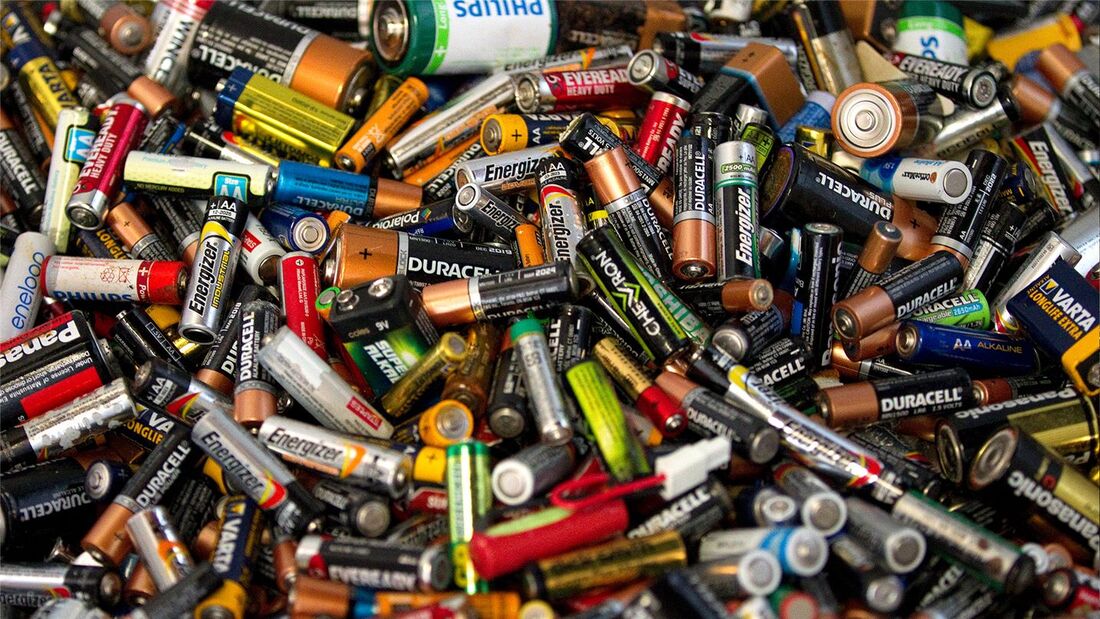Different countries, even states/provinces in the same country, may have different rules and regulations for battery recycling. A few country examples are described below, to provide you a sense about how you may need to conduct a bit of research locally before you know how you can help recycle batteries.
US
In the US, only one state, California, requires all alkaline batteries to be recycled. In other US states, individuals can purchase battery recycling kits used to ship batteries to recyclers. Some stores such as IKEA also collect alkaline batteries for recycling. However, some chain stores which advertise battery recycling (such as Best Buy) often only accept rechargeable batteries. In the US, at Earth911 Recycling Search, type in “Batteries” and your zip code, a list of drop-off locations and types of batteries they accept can be found.
Canada
Among Canada’s ten provinces and three territories, only four provinces (British Columbia, Ontario, Quebec and Manitoba) have battery stewardship and recycling regulation. For example, in Ontario, starting in July 2020, it is battery producers’ responsibility for collecting and reusing, refurbishing or recycling their batteries when consumers discard them. The required collection rate was set at 40% for 2020, which will increase over time to 50% for 2025. Producers will pay service providers (including haulers, refurbishers, processors and general contractors such as Call2Recycle) to fulfill their responsibility of recycling batteries. Free battery drop-off locations are widely available in Ontario, such as in libraries, pharmacies, hardware and electronic stores. In Canada, at Call2Recycle Locator, type in your zip code, and there will be a list of drop-off locations identified in your neighborhood.
European Union (27 countries)
In the past, used batteries ended up at landfill sites. In 2006, the EU Battery Directive regulated the manufacturing and disposal of batteries and accumulators in the EU to protect human health and the environment from hazardous substances. The EU Battery Directive requires producers to properly label their battery products. They must finance collection and recycling programs, as well as public awareness campaigns for battery waste disposal. In addition, they may not charge a fee for separate collection at the time of disposal.
Learn more:
https://www.epa.gov/recycle/used-household-batteries
https://www.call2recycle.ca
https://rpra.ca/programs/batteries/
https://ec.europa.eu/environment/topics/waste-and-recycling/batteries-and-accumulators_en
US
In the US, only one state, California, requires all alkaline batteries to be recycled. In other US states, individuals can purchase battery recycling kits used to ship batteries to recyclers. Some stores such as IKEA also collect alkaline batteries for recycling. However, some chain stores which advertise battery recycling (such as Best Buy) often only accept rechargeable batteries. In the US, at Earth911 Recycling Search, type in “Batteries” and your zip code, a list of drop-off locations and types of batteries they accept can be found.
Canada
Among Canada’s ten provinces and three territories, only four provinces (British Columbia, Ontario, Quebec and Manitoba) have battery stewardship and recycling regulation. For example, in Ontario, starting in July 2020, it is battery producers’ responsibility for collecting and reusing, refurbishing or recycling their batteries when consumers discard them. The required collection rate was set at 40% for 2020, which will increase over time to 50% for 2025. Producers will pay service providers (including haulers, refurbishers, processors and general contractors such as Call2Recycle) to fulfill their responsibility of recycling batteries. Free battery drop-off locations are widely available in Ontario, such as in libraries, pharmacies, hardware and electronic stores. In Canada, at Call2Recycle Locator, type in your zip code, and there will be a list of drop-off locations identified in your neighborhood.
European Union (27 countries)
In the past, used batteries ended up at landfill sites. In 2006, the EU Battery Directive regulated the manufacturing and disposal of batteries and accumulators in the EU to protect human health and the environment from hazardous substances. The EU Battery Directive requires producers to properly label their battery products. They must finance collection and recycling programs, as well as public awareness campaigns for battery waste disposal. In addition, they may not charge a fee for separate collection at the time of disposal.
Learn more:
https://www.epa.gov/recycle/used-household-batteries
https://www.call2recycle.ca
https://rpra.ca/programs/batteries/
https://ec.europa.eu/environment/topics/waste-and-recycling/batteries-and-accumulators_en


